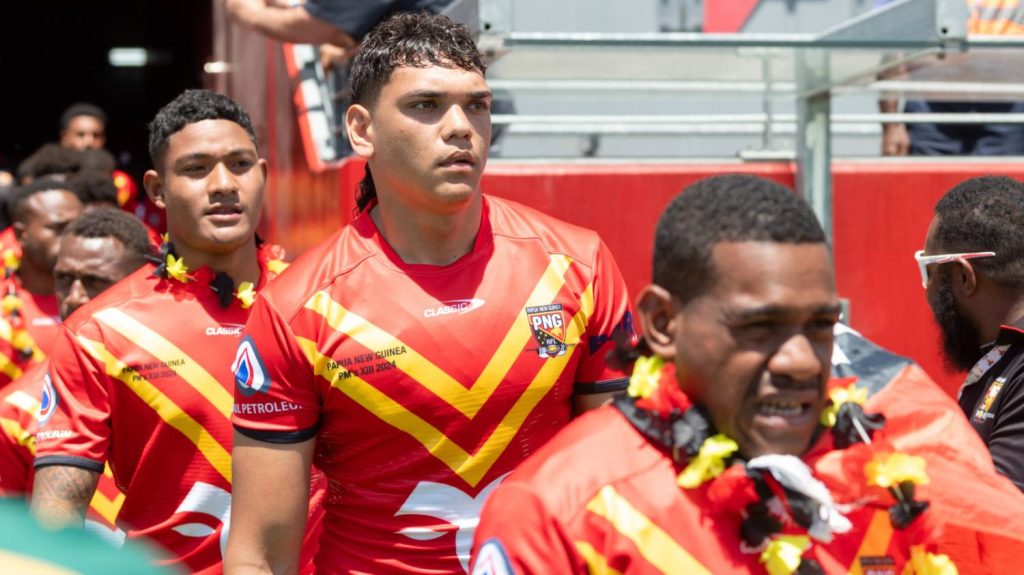The International Rugby League (IRL) Board has officially named Papua New Guinea, France, and Wales as its priority nations, with a fourth country in Africa to be selected later this year.
These nations will receive targeted investment and support through bespoke national strategies co-developed with their respective federations.
By narrowing the focus to just four countries, the IRL aims to concentrate its resources for maximum impact. Other strategically significant or high-potential nations may be added to the initiative in the future.
France, Papua New Guinea, and Wales were selected due to their historic importance to the sport, established participation bases, elite development pathways, and deep-rooted rugby league cultures.
France remains the most advanced of the tier-two nations in Europe, with a strong professional and semi-professional club infrastructure operating in one of the continent’s largest sports markets.
Mr. Stanley Hondina, Chief Executive Officer (CEO) of the Papua New Guinea Rugby Football League (PNGRFL), emphasized the country’s unmatched passion for the game.
“Papua New Guinea, the only nation where rugby league is the national sport, continues to shine as a global example of dedication and excellence,” he said.
He highlighted PNG’s six regional development pathways and academy programs, linked to the 12 clubs in the Digicel ExxonMobil semi-professional competition, as crucial building blocks for future stars.
Strategic appointments—such as Tony Archer, Joe Grima, and Stanley Gene—have strengthened PNGRFL’s pathway and performance systems. Hondina also pointed to recent standout performances by the Junior Kumuls and Junior Orchids as evidence of PNG’s rising potential.
“As we approach our 50th year of independence, rugby league is more than a sport—it’s a symbol of national unity and pride,” he said.
He also marked December 12, 2024, as a historic milestone: PNG was granted an NRL license, laying the groundwork for a Port Moresby-based team to join the NRL in 2028. This move is expected to boost grassroots development and deepen ties with Australia.
The PNGRFL’s 10th AGM, held in Port Moresby on March 29, further demonstrated the organization’s maturity, with audited financials presented by Ernst & Young—highlighting strong governance and transparency.
Wales Rugby League (WRL) was also honored by the IRL Board, with Chairman James Davies welcoming the recognition.
“It’s a real honour for Wales Rugby League to be recognized as a priority nation for growth,” Davies said. “We’ve got a proud legacy—starting with our first international win over New Zealand in 1908—and a bold vision for the future.”
He noted that WRL’s development pathways are expanding each year, with more than 40 players now linked to Super League clubs. Wales’ junior, women, and wheelchair teams are all gaining momentum, with the latter two already qualified for the 2026 World Cup.
Davies praised the new leadership under CEO Richard Hibbard—former Wales and British & Irish Lions international—who brings elite sporting experience and business acumen to the role.
“Our community game is the bedrock of everything we do,” Davies said, “and that’s where our future lies.”
The IRL sees competitive French and Welsh teams as essential to creating a commercially viable northern hemisphere international calendar, giving England alternatives to frequent matches against southern hemisphere teams.
In a major boost for PNG, the Australian Government will provide significant investment in rugby league development, aligned with the new Port Moresby-based NRL team’s entry in 2028.
Meanwhile, the Australian Rugby League Commission (ARLC) has introduced a policy allowing NRL clubs to sign up to two PNG Pathway Players—defined as athletes who participated in PNG’s junior competitions—outside of the salary cap. This move is designed to fast-track elite talent into the professional ranks.
Recognizing the growing interest in Africa, the IRL Board will select one priority nation from the continent following consultations with national governments. The region is seen as a long-term growth area for the sport.
The Las Vegas IRL Board meeting also laid out steps for a refreshed global strategy, including a Chair-led strategy committee. This work builds on the commercialized international calendar first outlined at the IRL Board’s mid-2023 meeting in Singapore.
World Cup hosts for 2028 (Women’s), 2029 (Wheelchair), and 2030 (Men’s) will soon be confirmed. Once set, full qualification pathways and tournament formats will be finalized, with planning for the 2028 Women’s World Cup already well advanced.
Revenues from future World Cups and major tournaments are expected to fund participation programs, capacity building, and other initiatives designed to grow the game globally.
In addition to backing the four focus nations, the IRL’s broader vision includes expanding global player participation and strengthening international rugby league at all levels.

